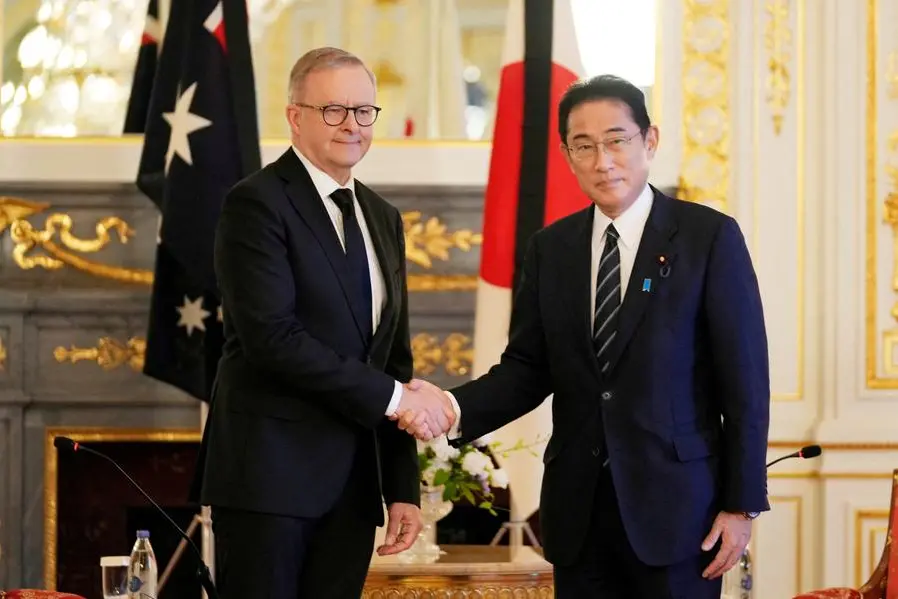PHOTO
Australian Prime Minister Anthony Albanese met with his Japanese counterpart Fumio Kishida on Saturday, saying the countries' bilateral relationship matters "more than ever", amid China's push for greater influence in the Asia-Pacific region.
At the annual Australia-Japan Leaders' Meeting, held in the Western Australia capital Perth, the two signed a security cooperation agreement updating a 2007 pact, to respond to a changed regional security environment, officials from the two U.S. ally nations said on Friday.
"The level of interaction which we have reflects very much the special strategic partnership that Australia and Japan have. We two countries really matter to each other now more than ever," Albanese said in opening remarks according to an official transcript.
The summit is the fourth for the leaders since Albanese took office in May.
Albanese and Kishida are also due to discuss climate change, expressing support for a regional transition to net zero carbon emissions, including boosting investment in clean energy technologies.
Kishida, in his opening remarks, said the two nations had been working to achieve a free and open Indo-Pacific under "an increasingly severe strategic environment".
"Through this experience, the bonds that tie Japan and Australia together have become much stronger. And our two countries have become the central pillar of cooperation among like-minded countries," he said.
Earlier, footage on social media showed Kishida receiving a ceremonial welcome on Saturday morning.
Australia is a major supplier of iron ore, coal and gas to Japan. Locating the meeting in Perth, 3,700 km (2,300 miles) from the national capital Canberra, was meant to showcase Western Australia's importance in supplying Japan's energy needs, including renewable energy. The state is also a key source of beef and wheat to Japan.
Canberra and Tokyo recently bolstered security ties in response to China's growing military strength in the region. In May, Kishida and Albanese pledged to work toward a new bilateral declaration on security cooperation.
A previous joint declaration outlined security cooperation in areas such as counter-terrorism and North Korea's missile and nuclear weapons programmes. The two countries in 2014 elevated their relationship to a "Special Strategic Partnership".
(Reporting by Sam McKeith in Sydney; Editing by William Mallard)





















